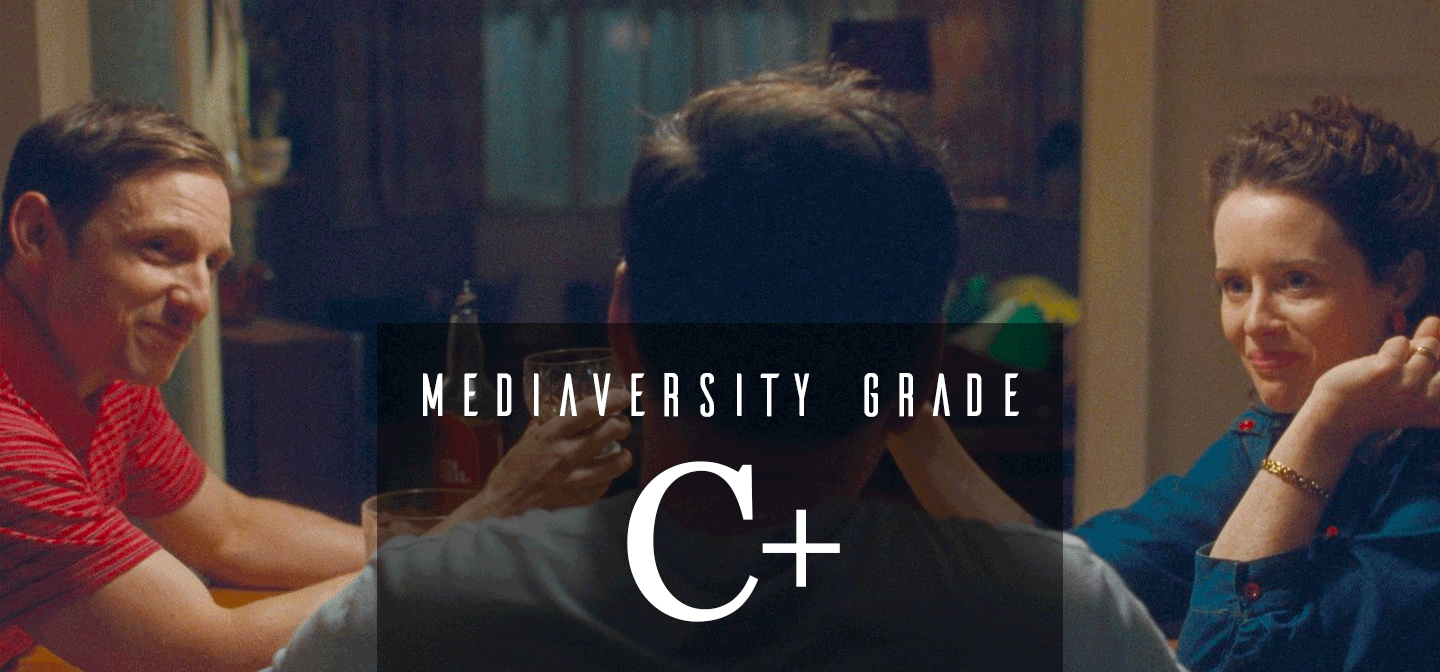All of Us Strangers
“With just four characters to home in on, All of Us Strangers eschews breadth in favor of depth.”
Title: All of Us Strangers (2023)
Director: Andrew Haigh 👨🏼🇬🇧
Writers: Andrew Haigh 👨🏼🇬🇧 based on the book by Taichi Yamada 👨🏻🇯🇵
Reviewed by Li 👩🏻🇺🇸
Technical: 4.25/5
Andrew Haigh’s brooding All of Us Strangers relentlessly drives its viewers into the past. A fractured timeline and unreliable narrator spins reality into a hall of mirrors, testing one’s ability to drift into a headspace with no linear propulsion and an omnipresent sense of doom. But under the surrealism, the film impactfully conveys what it’s like to excavate one’s family history, open wounds and self-imagined reconciliations and all.
Viewers follow main character Adam (Andrew Scott), a London-based screenwriter who lives alone in a nearly empty tower that’s swanky but crushingly soulless. In this urban hermitage, Adam attempts to write a script that’s based on his own life, of having two parents who died in a car crash when he was 11 years old. He imagines what it would be like to have conversations as an adult with his dad (Jamie Bell) and mom (Claire Foy), both of who would be younger than him at their times of death. But the longer Adam transports himself into these staged conversations, lines increasingly blur between memory, fiction, and reality.
Gender: 2/5
Does it pass the Bechdel Test? NOPE
The film clutches its conceit of a solitary man communing with his dead parents. The only other character of significance is Harry (Paul Mescal), Adam’s neighbor-turned-love-interest who serves to further splinter Adam’s mind. To that end, there’s very little focus on the only woman of significance in the film, Adam’s mom. Foy’s rendition of “Mum,” as she’s named in the credits, is understandably two-dimensional, as is Adam’s dad. They’re both projections of their son’s mind—static images of a heterosexual English couple circa the 1980s. Though Foy’s character does have incredible significance to Adam (of course she does, she’s his mum), there’s no exploration into her life and past, only into her relationship with her son.
Race: 1.75/5
All four main characters of this small cast are white. On the rare occasions Adam and Harry do venture out into London, whether riding the Underground or going to a nightclub, people of color appear in minor roles, but none of them have any dialogue.
Bonus for LGBTQ: +1.00
The 1987 novel that All of Us Strangers is based on, Taichi Yamada’s Strangers, originally features a straight protagonist. But the book’s themes of loneliness and an unhappy childhood lend themselves to a queer interpretation. Under the direction of Haigh, who’s openly gay, he makes the story his own, going so far as to shoot the film in his own childhood home just outside of London. In addition, it was important for him to cast a gay actor into the main role because “there's so much nuance [he] wanted to unpack … that [he] knew [he] had to choose someone that was of the same sexuality.” The results speak for themselves; film critic Erik Anderson says, “seeing [the father-son conversation] onscreen, feeling heard and understood, a vicarious experience can be a shockingly healing salve.”
Bonus for Disability: +1.00
The film harbors the deepest empathy for its characters who struggle with loneliness, depression, and substance abuse. But more than simply rendering them with kindness, Haigh goes one step further and puts viewers firmly in the shoes of Adam by normalizing the man’s conversations with his dead parents rather than treating it as psychosis. Unlike most films, which portrays any breaks from reality with fear and dread, you’ll find no wild camerawork here, nor minor characters looking warily at Adam from an outsider’s gaze. Even when Harry tells Adam he’d had a breakdown at the club the night before, yelling for his parents until Harry had to take him home, viewers are never privy to this side of Adam. We only see him as he sees himself—vulnerable and scared, yes, but perfectly human.
Mediaversity Grade: C+ 3.33/5
With just four characters to home in on, All of Us Strangers eschews breadth in favor of depth. It takes an incisive look at what it’s like to grow up as a gay cisgender white man in 1980s England and executes its premise brilliantly.




